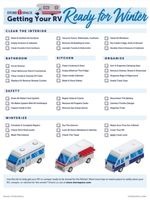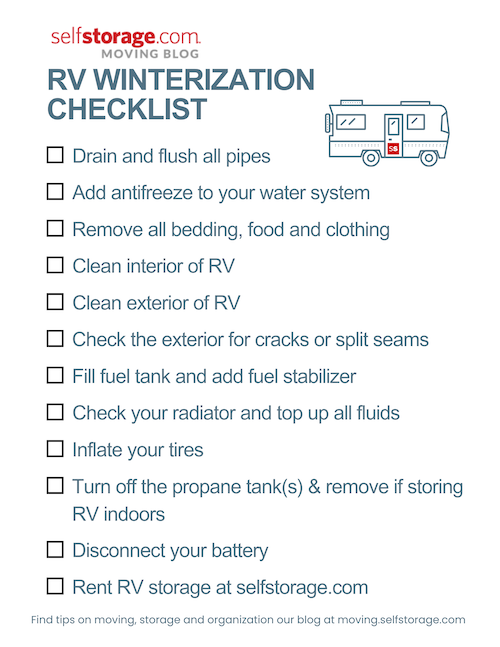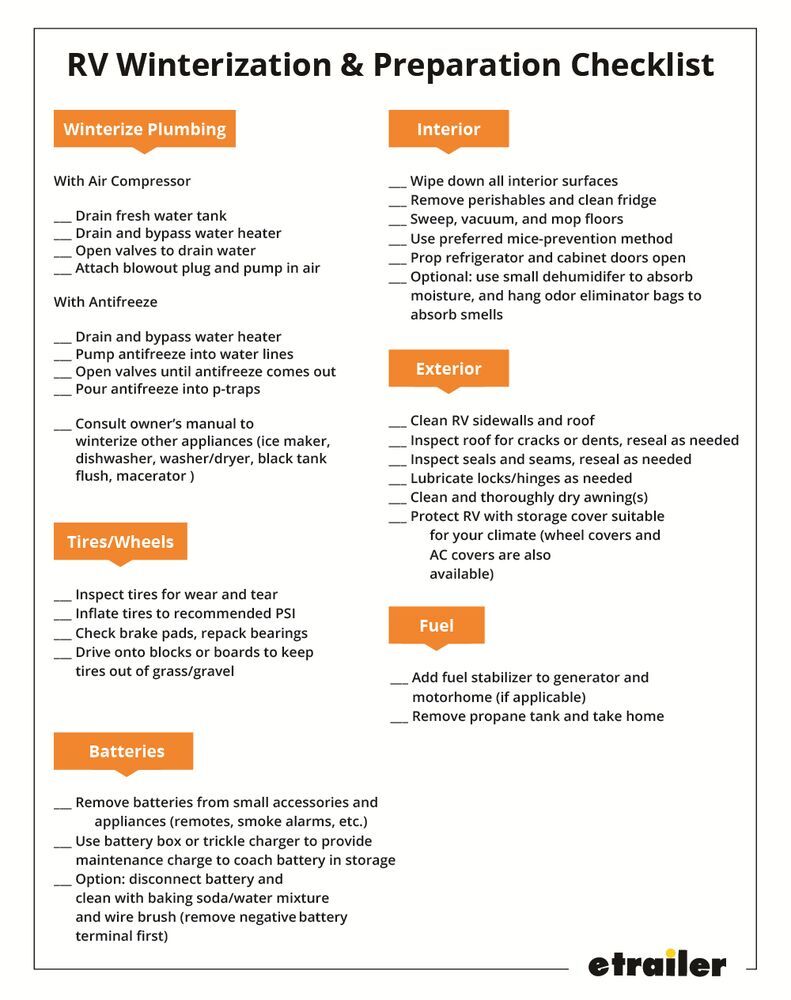As the leaves change and the temperatures drop, many RV enthusiasts start to think about winterizing their travel trailers. Having spent numerous winters on the road in my trusty travel trailer, I’ve learned the hard way that proper preparation can make all the difference in your winter adventures. This comprehensive checklist will guide you through the essentials of winterizing your travel trailer, ensuring you can hit the road safely and comfortably no matter how chilly it gets!
Why Winterizing Your Travel Trailer is Essential
Winterizing is crucial for several reasons:
- Preventing Freeze Damage: Water lines and tanks can freeze, leading to costly repairs.
- Extending Longevity: Regular maintenance can prolong the life of your trailer.
- Comfort: A well-winterized trailer keeps you cozy during your cold-weather travels.
Winterize Travel Trailer Checklist
1. Water System Preparation
Draining Water Tanks
Start by draining all water from your fresh water tank, gray tank, and black tank. This is vital to prevent freezing.
Winterizing the Plumbing
Consider using RV antifreeze in your plumbing system. Follow these steps:
- Turn off the water pump and disconnect your water supply.
- Open all faucets and drain the water lines completely.
- Pour antifreeze into the system via the city water connection. Make sure it reaches all faucets, toilets, and drains.
2. Battery and Electrical Systems
Battery Maintenance
Disconnect and remove your battery if you won’t be using the trailer for an extended period. Store it in a warm place and check the charge level every month.
Electrical Systems Check
Inspect all electrical connections for corrosion and ensure all lights and appliances are functioning properly before winter.
3. Insulation and Sealing
Windows and Doors
Check for any drafts around windows and doors. Use weatherstripping or caulking to seal gaps.
Insulating Pipes
Wrap any exposed water pipes with insulation tape or foam sleeves to protect against freezing.
4. Roof and Exterior Maintenance
Roof Inspection
Your roof is your first line of defense against winter weather. Inspect for any cracks or damage and repair as needed.

Exterior Wash and Wax
A thorough wash and waxing will protect the exterior paint from harsh winter conditions.
5. Storage Preparation
Tire Maintenance
Check tire pressure and inflate as necessary. Consider using tire covers to prevent UV damage.

Storing Your Trailer
If possible, park your trailer under cover or use a breathable cover to protect it from the elements.
Comparison of Top Winterizing Products
| Product | Rating | Price | Best for |
|---|---|---|---|
| Camco RV Antifreeze | 4.8/5 | $10 | General plumbing winterization |
| Valterra RV Antifreeze | 4.5/5 | $12 | All-season protection |
| RV Roof Sealant | 4.6/5 | $15 | Roof sealing |

Travel Tips for Winter RVing
Winter RVing can be a magical experience, but it comes with its own set of challenges. Here are some tips to enhance your experience:
Choose the Right Destinations
Some of my favorite winter destinations include:
- Yellowstone National Park: Experience the park’s beauty without the summer crowds.
- Big Bear Lake, California: Enjoy skiing and beautiful lake views.
- New England: Experience the charm of quaint towns during the holiday season.
Stay Connected
Ensure you have a reliable way to stay connected. Many RV parks offer Wi-Fi, but it’s handy to have a backup cellular connection.

Dress in Layers
When venturing outside, always dress in layers to stay warm and comfortable on your adventures.
Pros and Cons of Winterizing Your Travel Trailer
Pros
- Prevents costly repairs from freeze damage.
- Keeps your trailer in good condition for future trips.
- Enhances comfort during winter travels.
Cons
- Requires time and effort to do it correctly.
- Potential costs for products and maintenance.

FAQs about Winterizing Travel Trailers
How often should I winterize my travel trailer?
It’s recommended to winterize your trailer every year if you live in a cold climate or plan to winterize for the season.
What type of antifreeze should I use in my travel trailer?
Make sure to use non-toxic RV antifreeze that’s specifically designed for plumbing systems in RVs. Avoid using automotive antifreeze as it can be harmful.

Can I use my travel trailer in the winter without winterizing it?
Yes, but only if you’re in a mild climate where freezing temperatures aren’t a concern. Even so, be cautious as water systems could freeze easily in an unexpected cold snap.
Final Thoughts
Winterizing your travel trailer doesn’t have to be a daunting task. With this checklist, tips, and a bit of preparation, you can enjoy the winter months just as much as the warmer seasons. From cozy nights by the campfire to stunning snowy landscapes, the winter months can provide a unique travel experience that’s well worth it. Now grab your supplies, hit the road, and create unforgettable winter memories!